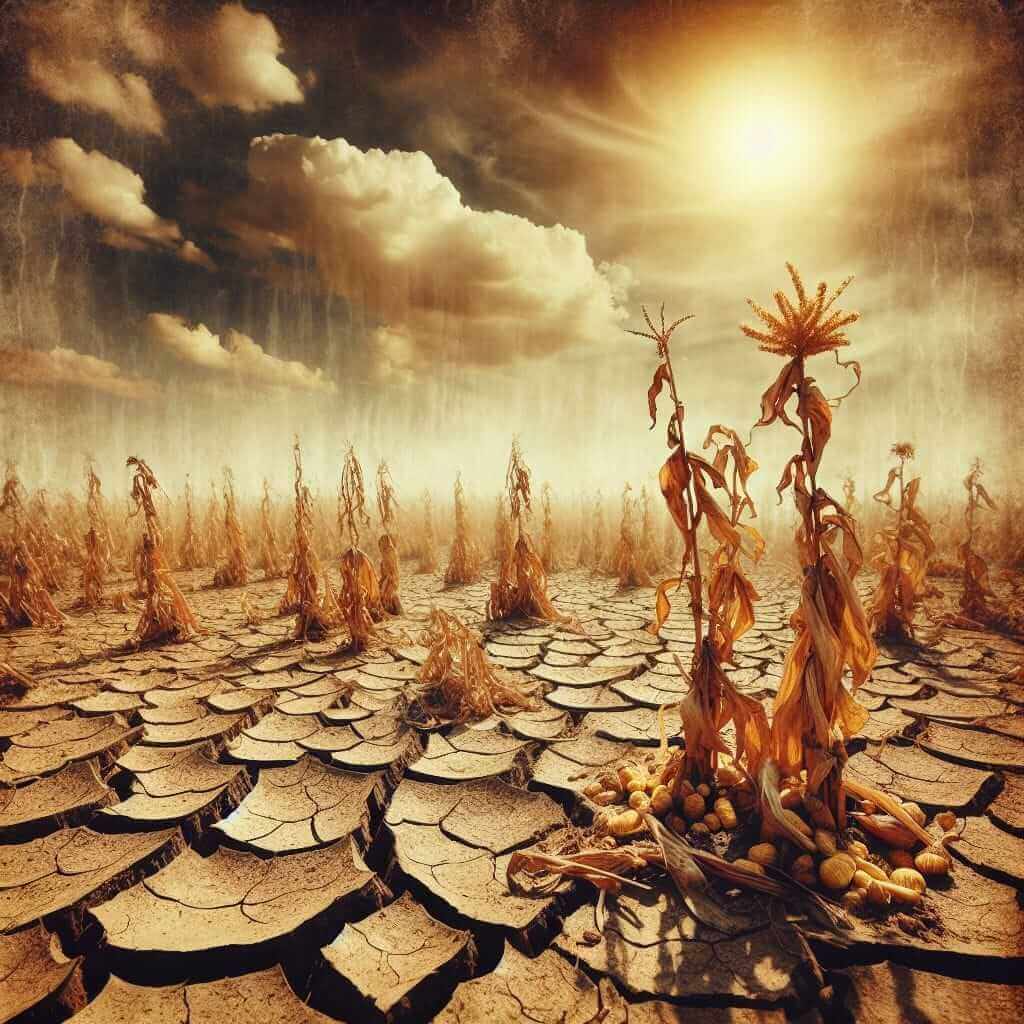For many IELTS candidates, the Reading section can be particularly daunting, especially when faced with complex and contemporary topics like climate change and global food security. This article aims to shed light on these topics and provide a comprehensive IELTS Reading practice test to help you better prepare for your examination.
Climate change has been a recurring subject in IELTS Reading tests due to its global relevance and the rich vocabulary it introduces. Moreover, given its ongoing significance, it’s likely that this topic or related themes will continue to appear in future exams. By understanding its impacts on global food security, candidates can enhance their comprehension skills and be better equipped for the Reading section.
Reading Practice Test: The Impacts of Climate Change on Global Food Security
Passage
Climate change, characterized by long-term alterations in temperature, precipitation, and weather patterns, significantly affects global food security. The primary impacts include reduced agricultural productivity, increased incidence of pests and diseases, and compromised nutritional quality of crops.
Firstly, rising temperatures and changing precipitation patterns directly influence crop yields. Extreme weather events such as droughts, floods, and storms can destroy crops and reduce the arable land available for farming. For instance, prolonged droughts in Sub-Saharan Africa have led to severe food shortages, exacerbating the region’s food insecurity.

Secondly, climate change fosters the proliferation of pests and disease vectors. Warmer temperatures can expand the habitable zones for various pests such as locusts, which devastate crops. Similarly, plant diseases that thrive in warmer and wetter conditions are likely to spread, threatening food production in affected regions.
Moreover, the nutritional quality of crops may deteriorate due to elevated CO2 levels. Studies have revealed that higher CO2 concentrations can reduce the protein, iron, and zinc content in staple crops like wheat and rice, impacting the nutritional health of populations that rely heavily on these foods.
Finally, the socio-economic dimensions of food security are compounded by climate change. It disproportionately affects smallholder farmers, who lack the resources to adapt to changing conditions. This can increase poverty levels and trigger migration, leading to societal instability.
The impacts of climate change on food security are multifaceted and pose significant challenges. Addressing these issues requires coordinated global efforts to implement sustainable agricultural practices, invest in resilient infrastructure, and foster international cooperation.
Questions
Multiple Choice
-
According to the passage, how do rising temperatures affect crop yields?
- A. Improved soil fertility
- B. Reduced agricultural productivity
- C. Increased land for farming
- D. Lesser need for water
-
What is one way in which climate change increases the incidence of pests and diseases in crops?
- A. Decreasing rainfall
- B. Cooler temperatures
- C. Expanding habitable zones
- D. Increased soil salinity
True/False/Not Given
-
Studies have shown that higher CO2 levels increase the protein content in crops. (True/False/Not Given)
-
Climate change impacts smallholder farmers more severely due to their lack of resources. (True/False/Not Given)
Matching Headings
5-7. Match the following sections of the passage to the appropriate headings:
- A. Socio-economic Challenges
- B. Pest and Disease Proliferation
- C. Direct Impacts on Crop Yields
- D. Nutritional Deterioration of Crops
Summary (Complete the sentences)
Complete the summary using NO MORE THAN THREE WORDS from the passage.
8-9. Climate change leads to extreme weather events such as (8), (9), and storms, which can reduce arable land.
10-11. Higher CO2 levels reduce the (10), (11), and zinc content in crops.
Answer Key and Explanations
Multiple Choice
-
B. Reduced agricultural productivity
- Explanation: The passage states that rising temperatures and changing precipitation patterns directly influence crop yields, leading to reduced agricultural productivity.
-
C. Expanding habitable zones
- Explanation: The passage explains that warmer temperatures can expand habitable zones for pests, thereby increasing their incidence.
True/False/Not Given
-
False
- Explanation: The passage states that higher CO2 levels reduce the protein content in crops, not increase it.
-
True
- Explanation: The passage mentions that smallholder farmers are disproportionately affected by climate change due to their lack of resources to adapt to changing conditions.
Matching Headings
-
C. Direct Impacts on Crop Yields
- Explanation: The first section discusses how rising temperatures and changing precipitation patterns affect crop yields.
-
B. Pest and Disease Proliferation
- Explanation: The second section focuses on how climate change fosters the proliferation of pests and diseases.
-
A. Socio-economic Challenges
- Explanation: The final section addresses the socio-economic dimensions of food security affected by climate change.
Summary (Complete the sentences)
8-9. Droughts, floods
10-11. Protein, iron
Common Vocabulary
- Prolonged (adj): Continuing for a long time (prəˈlɒŋd)
- Arable (adj): Suitable for growing crops (ˈærəbl)
- Proliferation (n): Rapid increase (prəˌlɪfəˈreɪʃən)
- Resilient (adj): Able to withstand or recover quickly (rɪˈzɪliənt)
Grammar Focus
Relative Clauses:
- Definition: Clauses that provide additional information about a noun.
- Example from the passage: “Warmer temperatures can expand the habitable zones for various pests, which devastate crops.”
Tips for Scoring High in IELTS Reading
- Practice Regularly: Consistent practice helps enhance your reading speed and comprehension.
- Expand Vocabulary: Familiarize yourself with topic-specific vocabulary.
- Use Context: Use context clues to infer the meaning of unfamiliar words.
- Time Management: Allocate time effectively to answer all questions.
- Review: Always review answers to minimize errors.
For further practice on related topics, feel free to explore our articles on What are the consequences of climate change on food security? and How does climate change influence food security?.
Good luck with your IELTS preparation!